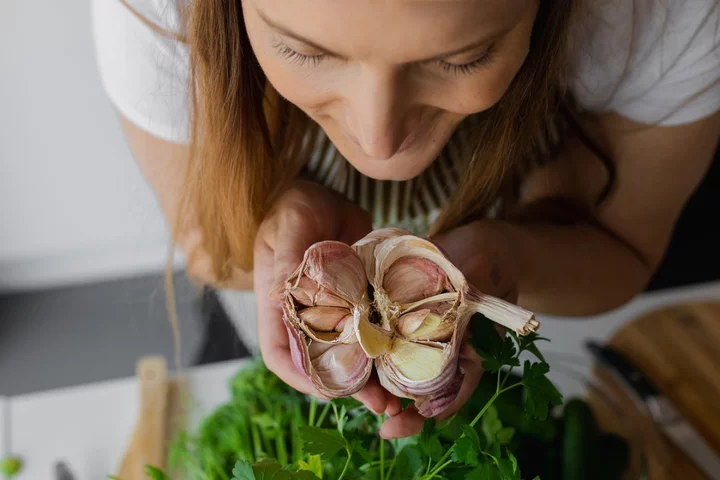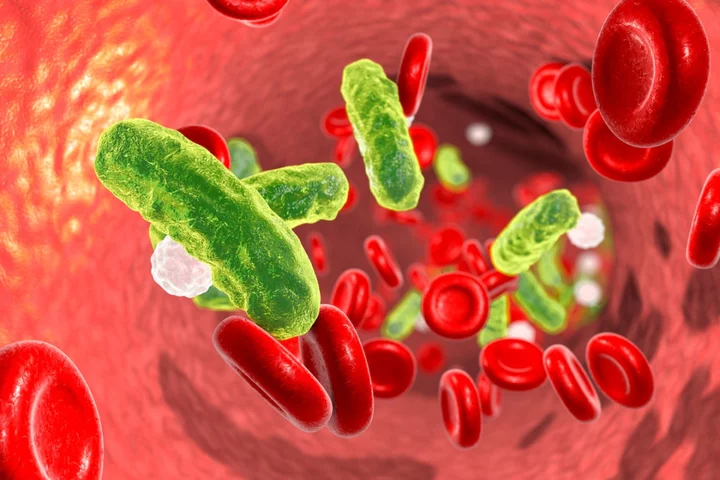
Millions of women able to get contraceptive pills over the counter next year
Millions of women will be able to get free contraceptive pills on the high street from next year without having to see a GP, under new plans revealed by the NHS. Starting next month, women in England can obtain a first prescription of the pill by visiting their local pharmacy. The change will give women greater choice over where to get the pill, and will free up 10 million appointments in GP surgeries, according to NHS England. The move has been hailed as a “step in the right direction” for patients and comes as part of a broader plan to allow patients to be treated for a range of conditions at local pharmacies. These conditions include sore throats and urinary tract infections. William Pett, the head of policy, public affairs and research at Healthwatch England, said: “Women across England will welcome the convenience of getting the contraceptive pill at a local pharmacy. “Being able to see your GP in a timely manner remains the public’s top concern. “If this initiative is effectively communicated and delivered, it will make a real difference to patients and relieve the pressure on hard-pressed services.” Mr Pett said there could be problems with the plan, though, such as pharmacists not being able to see a patient’s GP records, or differences in access between different areas of the country. The plan to make the pill available from pharmacies was piloted among a cohort of 4,500 women earlier this year. Under the scheme, if women opt for the combined oestrogen and progestogen pill, they will have a check-up with a pharmacist to record their blood pressure and weight. No checks are needed for the mini pill (progestogen only), which is also the case in other settings, NHS England said. Pharmacies need to sign up for the new service, meaning that it will not be available immediately everywhere in England. As more pharmacies join the scheme, the NHS web page will be updated so that women can check which locations offer the service. Women who are significantly overweight, or whose blood pressure is high – putting them at higher risk of blood clots on the combined pill – may be referred to their GP for further checks. The ongoing checks on blood pressure and weight that women need when they are on the pill will also be available in pharmacies. Funding has also been put in place to allow more pharmacies to offer repeat prescriptions of all types of contraceptive pill. NHS England said it expects almost half a million women to be able to access the pill next year without needing to contact their GP first, with the figure rising after that. Prescription figures for 2022-23 suggest there were almost 3 million prescriptions for the combined pill and more than 4 million for the mini pill. NHS chief executive Amanda Pritchard said of the plan: “This is really good news for women – we all lead increasingly busy lives, and thanks to this action, rather than making a GP appointment, they can simply pop into their local pharmacy when they need or want to access contraception. “We will also be expanding services so that more health checks are available for patients on the high street, which is not only better and easier for patients but also frees up NHS time for more GP appointments for those who need them most.” Under wider plans, pharmacists will be offering more blood pressure checks to patients who are at risk of high blood pressure, with a commitment to deliver 2.5 million a year by spring 2025. NHS England estimates that this could prevent more than 1,350 heart attacks and strokes in the first year. Dr Leyla Hannbeck, CEO of the Association of Independent Multiple Pharmacies, said: “This is a step in the right direction for patient care. The pharmacy network has the knowledge, skill sets and the willingness to deliver these services and support the NHS. For years we have been highlighting that, if supported appropriately, pharmacies can add a lot of value to the NHS. We are accessible and we have a track record of delivering for patients.” Victoria Atkins, the new health and social care secretary, said: “For the public, these changes will mean more options for women when making a choice about their preferred contraception, reduce the risks of people suffering heart attacks and strokes, and make it easier to access medicines for common conditions.” Janet Morrison, chief executive at Community Pharmacy England, said: “It makes perfect sense to use community pharmacies as a first port of call for healthcare advice, access to contraception, and health checks such as blood pressure tests.” Read More Stephen Fry uses walking stick after breaking his leg, pelvis and ‘a bunch of ribs’ Jonnie Irwin jokes he’s ‘whacked’ after attending The Streets gig in Newcastle Kourtney Kardashian ‘gives birth to first child’ with Travis Barker Stephen Fry uses walking stick after breaking his leg, pelvis and ‘a bunch of ribs’ Jonnie Irwin jokes he’s ‘whacked’ after attending The Streets gig in Newcastle Kourtney Kardashian ‘gives birth to first child’ with Travis Barker
2023-11-16 11:29

The exact time Brits find themselves ‘uncontrollably hungry’ revealed
One in four Brits find themselves uncontrollably hungry by 10:30 am, research has found. A study of 2,000 adults found they typically snack twice a day, with sausage rolls, crisps, biscuits and bananas the most popular choices. But 27 per cent get the munchies by mid-morning, and a third have even got out of bed for a midnight snack. Other popular treats include chocolate bars, nuts, cake and crackers. A spokesman from Wall’s, which commissioned the research as part of its ‘When hunger calls, grab a Wall’s’ campaign, said: “Sometimes a snack can be an absolute saviour to your day as the research has shown. “Uncontrollable hunger at times can absolutely take over and leave you unable to get on with your day until it’s been satisfied. “And there’s real enjoyment taken from ridding of this hunger whenever it strikes with a snack never being far away.” The study also found 23 per cent of adults don’t usually have breakfast, with 36 per cent of those claiming they are more prone to snacking as a result. When watching TV, over the weekend and in the workplace were the most common times and places to chomp on a treat. And more than £10 is spent on them in a typical week, according to the OnePoll data. More than seven in 10 (73 per cent) have snacks stocked up in their homes for when they need them, and 25 per cent have hidden them from loved ones. While 21 per cent have a dedicated drawer in their workplace for keeping them for when hunger calls. The importance of a snack cannot be underestimated though as 60 per cent believed a great treat can save a rubbish day. To avoid a bad day, 33 per cent will typically pack one for themselves when leaving the house. However, 20 per cent have been made to feel guilty about their snacking habits with others pointing out the frequency they so do. A spokesperson from Wall’s [https://www.instagram.com/wallspastry], added: “Hunger can be overpowering and there’s nothing worse than being caught short and having nothing to hand. “However, there’s no better feeling than finally chomping on something after having been hungry for a while and satisfying that desire. “Snacks such as sausage rolls are a great and versatile option for when hunger calls.” Top 20 most popular snacks, according to Brits: 1. Crisps 2. Biscuits 3. Chocolate bar 4. Banana 5. Nuts 6. Cookies 7. Cake 8. Toast 9. Apple 10. Grapes 11. Crackers 12. Cereal bar 13. Yoghurt 14. Sausage roll 15. Orange/satsuma 16. Cereal 17. Doughnut 18. Berries 19. Flapjack 20. Popcorn Read More Smoking during pregnancy doubles premature birth risk, study finds Four in ten Brits ignore potentially serious eye problems, study finds Study finds women only give themselves 30 minutes of self-care a week Children avoid sleepovers due to fears of wetting the bed Most unwanted gifts people have received The best napping method to help with pulling an all-nighter
2023-09-29 18:55

Yoghurt could be the cure for bad garlic breath, study finds
It’s hard to resist garlic sometimes, but its pungent smell can often last long on the tongue and what better way to get rid of it than good old yoghurt? Garlic contains a compound called sulfur volatiles that can cause a bad odour after being eaten. Researchers wanted to better understand how yoghurt and its components can eliminate or reduce such strong odours. For the study, researchers from the Department of Food Science and Technology at Ohio State University, Columbus tested the garlic deodourising capabilities of yoghurt and its individual components of water, fat and protein to see how each stood up to the smell. As a result, the team found both fast and protein were effective at trapping garlic odours, leading the scientists to suggest high-protein foods may one day be formulated specifically to fight garlic breath. “High protein is a very hot thing right now – generally, people want to eat more protein,” said senior study author Sheryl Barringer, professor of food science and technology at the university. “An unintended side benefit may be a high-protein formulation that could be advertised as a breath deodorizer in addition to its nutritional claims,” she said. “I was more excited about the protein’s effectiveness because consumer advice to eat a high-fat food is not going to go over well.” In the lab experiment, researchers placed equal amounts of raw garlic in glass bottles and confirmed the smell of the garlic was released in concentrations that would be detected by the human nose. Scientists measured the levels of volatile molecules in gaseous form present before and after each treatment. It was revealed that garlic alone reduced 99 per cent of the major odour-producing raw garlic volatiles. When introduced separately, the fat, water and protein components of yoghurt also had a deodorising effect on raw garlic, but results showed fat and protein performed better than water. Looking at fat’s performance, a higher quantity of butter fat was more effective at deodorisation. The proteins which were studied included different forms of whey, casein and milk proteins, all of which were effective at deodorising garlic. This may be because of their ability to trap the volatile molecules before they are emitted into the air. A casein micelle-whey protein complex performed the best. “We know proteins bind flavour – a lot of times that’s considered a negative, especially if a food with high protein has less flavour. In this case, it could be a positive,” Barringer said. Additional experiments that involved changing the pH of the yoghurt to make it less acidic (4.4 pH to 7 pH) actually appeared to lower the yoghurt’s deodorisation effect on the garlic. However, changing the pH of water did not seem to make any difference on the water’s deodorization effect. “That’s telling me it goes back to those proteins because as you change pH you change the configuration of proteins and their ability to bind. That said we definitely should be looking at these proteins,” Barringer said. “It probably depends on the protein, as well, because different proteins react differently to pH. So that may be an important thing as we look at other proteins for their garlic deodorization effect.” The team also tested the deodorising effect of yoghurt and its components on fried garlic, in the process they found that drying garlic alone can significantly reduce garlic odour. Yoghurt and its individual ingredients neutralised a lower percentage of volatile compounds of fried garlic compared to raw garlic. Study authors think this may be because there were fewer volatiles to trap than were present in the raw cloves. The findings have provided a foundation for future studies on proteins that might help fight the garlic breath. In the meantime, Barringer predicts that Greek yoghurt, with a higher protein profile than the whole milk plain yoghurt used in the study, may be particularly effective at getting rid of garlic breath. Fruit-flavoured yoghurts will probably work, too, she said – and whatever is used, it must quickly follow ingestion of raw garlic. “With apples, we have always said to eat them immediately,” she added. “The same with yoghurt is presumed to be the case – have your garlic and eat the yoghurt right away.” The study was published in the journal Molecules. Read More 11 best mouthwashes that will keep your mouth minty fresh Women less likely than men to receive CPR from strangers, study finds Study finds toxic ‘forever chemicals’ may be ‘intentionally added’ to some period products Yoghurt could be the cure for bad garlic breath, study finds Teenager’s death after drinking too much water was ‘preventable’ Could bats hold the secret to beating Covid and cancer?
2023-09-25 17:56

Could bats hold the secret to beating Covid and cancer?
Bats could hold the key to unlocking new ways to combat cancer, a new study suggests. A paper published by Oxford University Press, looks at the rapid evolution of bats for their abilities to both host and survive infections such as Covid-19 as well as cancer. The animals are known to have a strong immune system which helps fight off many viruses and diseases. These mammals are also thought to have played a role in the emergence of Covid-19 and scientists say such characteristics are interesting to investigate due to the implications it might have on human health. According to the research, understanding the mechanisms of the bat’s immune system that allows these animals to fight off viral infections – may pave the way to understanding how to prevent disease outbreaks from animals to people. To conduct the study, researchers sequenced the genomes of two bat species - the Jamaican fruit bat and the Mesoamerican mustached bat. The team used advanced technology from Oxford Nanopore Technologies and bat samples collected by the American Museum of Natural History in Belize. They then compared the bat genomes to those of other mammals. The results revealed that bats possessed genetic adaptations in proteins which are related to DNA repair and cancer suppression. It was found that bats had adaptations in six DNA repair-related proteins and 46 cancer-related proteins. The study also found that bats had more than double the number of altered cancer-related genes compared to other mammals, which provided further evidence that they have the ability to suppress cancer. “By generating these new bat genomes and comparing them to other mammals we continue to find extraordinary new adaptations in antiviral and anticancer genes,” said the paper’s lead author, Armin Scheben. “These investigations are the first step towards translating research on the unique biology of bats into insights relevant to understanding and treating ageing and diseases, such as cancer, in humans.” The results open up new paths for understanding and studying the links between cancer and immunity, which offers hope that these insights from bats might possibly lead to new treatments for human illnesses. According to the United States Department of the Interior, there are over 1,400 species of bats worldwide and are mostly found in extreme deserts and polar regions. In the US and Canada, there are about 45 species of bats. Read More British bats ‘can help identify coronaviruses with potential to infect humans’ Coronavirus origins still a mystery 3 years into pandemic Groundbreaking migraine treatment offers ‘new hope’ for patients World Sepsis Day: What is the condition and its symptoms? Duran Duran’s Andy Taylor says he’s ‘asymptomatic’ after end-of-life diagnosis
2023-09-20 22:26

World Sepsis Day: What is the condition and its symptoms?
Sepsis is an illness that affects nearly 50 million people worldwide each year, with around 11 million deaths attributed to the condition. In the United States, at least 1.7 million adults in the US develop sepsis annually, and nearly 270,000 die as a result, the Centres for Disease Control and Prevention (CDC) says. It affects 245,000 people in the UK each year, with around 48,000 deaths, according to the UK Sepsis Trust. World Sepsis Day commemorated on 13th September every year, strives to raise global awareness of the life-threatening condition. The day is seen as “an opportunity for people worldwide to unite in the fight against sepsis,” the Global Sepsis Alliance says. Here is everything you need to know about sepsis: What is sepsis? Sepsis Research says when the condition strikes, the immune system “overreacts” and begins to attack the infection and everything else around it “including the body’s own tissues and organs.” “Any type of infection — bacterial, viral or fungal — can lead to sepsis,” it adds. When sepsis occurs, it can cause inflammation and cause blood clotting around the body, if it does not get treated, it can result in death, organ failure and tissue damage, CDC says. Sepsis cannot be caught from another person, the NHS explains. What are the symptoms? The World Health Organisation (WHO) explains that the condition is a “medical emergency,” so if you think a person is exhibiting signs of sepsis or if you are showing signs – make sure you call 999 or go to the emergency room immediately. According to WHO, common signs and symptoms include: • Fever or low temperature and shivering • Confusion • Difficulty breathing • Clammy or sweaty skin • Extreme body pain or discomfort • High heart rate, weak pulse or low blood pressure • Low urine output Symptoms in children include: • Fast breathing • Convulsions • Pale skin • Lethargy • Difficulty waking up • Feeling cold to touch What are the causes? The Mayo Clinic says any type of infection can lead to sepsis and those that more commonly cause the condition include infections of: • Lungs, such as pneumonia • Kidney, bladder and other parts of the urinary system • Digestive system • Bloodstream • Catheter sites • Wounds or burns “Sepsis often presents as the clinical deterioration of common and preventable infections such as those of the respiratory, gastrointestinal and urinary tract, or of wounds and skin. Sepsis is frequently under-diagnosed at an early stage - when it still is potentially reversible,” the Global Sepsis Alliance says. Who is most at risk? The people most at risk of the condition, according to Mayo Clinic, are: • People with lower immune response, such as those being treated for cancer • People with human immunodeficiency virus (HIV). • People with chronic diseases such as diabetes kidney disease or chronic obstructive pulmonary disease (COPD). • people who are in intensive care or longer hospital stays. • People over the age of 65 • Infants How many cases are there globally? The WHO says a scientific publication estimated that in 2017 there were 48.9 million cases and 11 million sepsis-related deaths worldwide, which accounted for almost 20 per cent of all global deaths. That same year, almost half of all global sepsis cases occurred among children with an estimated 20 million cases and 2.9 million global deaths in children under 5 years of age. How can it be prevented? The Global Sepsis Alliance says the best to to avoid sepsis is by preventing infection. This can be done by undergoing vaccinations, ensuring that you only come into contact with clean water, washing your hands properly and if you are giving birth - making sure it is in a clean and sterilised environment. Can sepsis be treated? Sepsis can be treated with appropriate treatment such as antibiotics – this should be given as soon as possible. The CDC says sometimes “surgery is required to remove tissue damaged by the infection”. “Antibiotics are critical tools for treating life-threatening infections, like those that can lead to sepsis,” the CDC adds. Read More 5 things everyone needs to know about eczema 13 potential cancer symptoms you should get checked out How can I improve my teenager’s low mood? Duran Duran’s Andy Taylor says he’s ‘asymptomatic’ after end-of-life diagnosis Nine hours of parallel surgery: how Britain’s first womb transplant was carried out Bursts of activity that make you huff and puff ‘linked to reduced cancer risk’
2023-09-12 03:20
